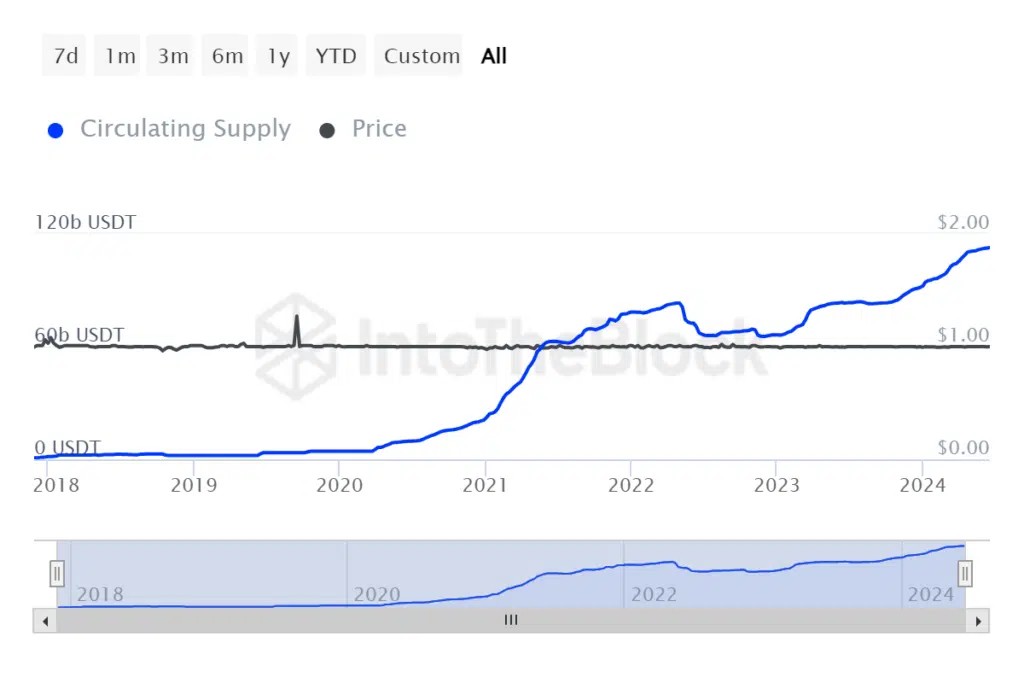Among the most well-known stablecoins, Tether has announced that it will stop supporting USDT money on the Ethereum and EOS blockchain systems over the next twelve months. This is a wise move to concentrate on platforms that fit society’s needs and enable simpler operations through resource combination.
In a Monday comment, USDT reiterated its support of fresh ideas and its will to raise the efficiency and safety of cryptocurrencies. “Our goal is to allocate resources where they can best enhance security and efficiency while continuing to support invention across the crypto landscape,” it stated.
Tether Emphasizes Commitment To Innovation And Security In Crypto
Tether underlined in a Monday comment its support of new ideas and its will to increase the efficiency and safety of cryptocurrencies. “We want to allocate resources where they can best improve security and efficiency while still supporting invention across the crypto landscape,” it said.
USDT holders on Algorand and EOS might still cash them out as part of the shift until the phase-out ends next year. USDT also mentioned they could amend this at any point or add further specifics.
Although daily transaction volumes of both tokens exhibited substantial rises of more than 100%, CoinMarketCap data shows that Algorand’s native token (ALGO) and EOS saw modest drops in value following the announcement.
Tether is the most used stablecoin with a US dollar peg. EOS stopped supporting Ethereum, though, and cut the number of blockchain networks it backs from 14 to 12. USDT will still be used on Avalanche, Celo, Cosmos, Ethereum, Liquid Network, Near, Polkadot, Solana, Tezed, The Open Network (TON), and Tron.
Anticipating 2023, Tether stopped purchasing USDT on Bitcoin, Bitcoin Cash, and Kusama in August of that year, therefore terminating support for its stablecoin on open networks.
This behavior shows Tether’s will to match emerging technologies, create community requirements, and increase its capacity to change its platform offers.








